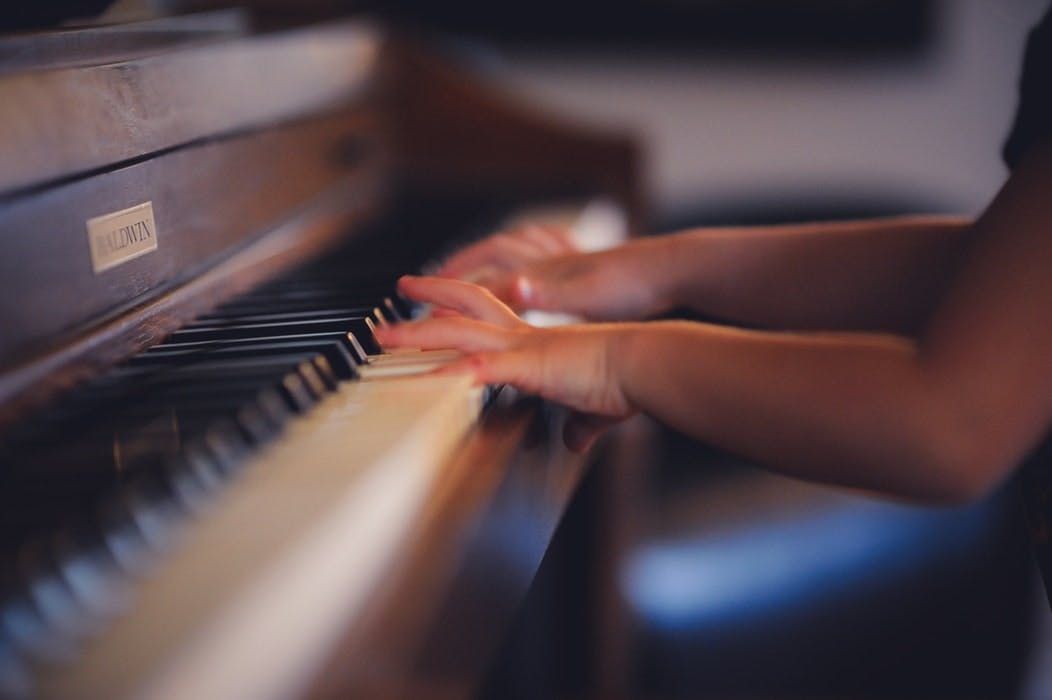My son Warren won a trophy in his music school recently. I am extremely proud of him of course, but the trophy really represents his love of learning to play to piano. And that has much to do with his teacher and great lessons that make it so enjoyable for him to practice. He’s just been taking lessons since last year but his progress has been so rapid that he can now compose his own music as well as play popular and classical pieces. I’m sure he will enjoy his ability to read music and play the piano when he is an adult, but I started to wonder if there were other benefits to music lessons after reading some research in this area.
One particularly interesting article published in 2017 by the Novak DJokovik Foundation reported all kinds of other benefits arising from children’s music education. According to 2004 study University of Toronto Psychology researcher E. Glenn Schellenberg, six-year children taking weekly music lessons showed a small increase in their IQs. At first I was somewhat skeptical about this claim, but then I read about research conducted by Dr. Eric Rasmussen at Johns Hopkins University which looked at the neuroscience behind this idea. It was discovered that children taking music education have more growth of their neural activity. In other words, playing an musical instrument causes you to use more areas of your brain. This finding was also supported by a study done by Ellen Winner, a Psychology professor at Boston College and Gottfreid Schlaug, a professor of neurology at Beth Israel Deacones Medical Centre and Harvard Medical School. These researchers found changes in brain images in children after 15 weeks of weekly music lessons. What these images supported with visual evidence was the improved sound discrimination and fine motor skills in these children.
Another interesting scientific finding about children who took music lessons was the link between music and spatial intelligence. This means that music can help in the visualization of things that should go together, for example in the kind of problem solving in some types of math problems. It also applies to the kind of skills that are used in architecture, engineering, art, and gaming of the sort designed with computers.
Researcher Mary Mary Luehrisen at the National Association of Music Merchants said that music can also bring significant benefits to children’s formal learning through enhanced language development between ages two and nine. I take it from this that a two-year old is not actually taking music lessons, so it would mean that providing an environment of music for a young child would have beneficial effects. However, I didn’t find what kind of music the two year child was exposed to, and I think this is probably important. I have heard that the classical music of Mozart is very good for children, and I would be naturally inclined to play for my youngster over some heavy metal rock. My son’s piano lessons include classical pieces by great composers like Beethoven and it seems to be proving very effective. As far as Warren’s language development being improved with music, it is probably a bit late to see effects there. He has always been a avid reader, and this helped develop his early language skills. However, research by Yale University researcher Kyle Pruett showed the relationship between language development and music can be the other way around. That is to say, that language development enhances the parts of the brain that process music. So it seems that the link between language development and music works both ways. Other research showed that music lessons actually helped developed the left side of the brain, which is also the side used to process language. I found this very interesting because the left side of the brain is associated with analytical skills such as mathematical problem solving, while the right side is normally associated with intuitive operations like artistic expression. So, it appears these hemispheres of the brain are connected in their functions, just as music and language development are connected.
There is also a broader kind of educational value that has been uncovered in the overall effects of music education. It is that because language competence is the basis of competence in social relationships. It can be seen then that with the verbal capacity strengthened by the child’s musical experience, the child will be inclined to greater social competence.
All of this is very good to know, but it wasn’t the reason my son Warren is taking piano lessons. He just loves learning, and music is its own reward. But nonetheless, I’m very proud of his accomplishment so far.
But the most important thing, I believe, is that is that he enjoys it!
Thanks for reading!
Sibo Zhang, REALTOR®


